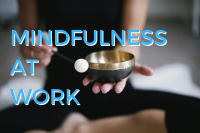![]()
Takedowns, breakdowns, letdowns and mistakes are simply a fact of work.
They will happen, no matter how much you try to avoid them.
What matters is your level of resilience and how quickly and easily you can bounce back.
Resilience is a trait that everyone from former Westpac CEO Gail Kelly to former Prime Minister Julia Gillard, cite as essential for success. It’s not only needed for managing the big unexpected things that come our way, but also the every day challenges that come up at work.
Thankfully, resilience can be strengthened.
We invited two of the most resilient leaders we know to join Women’s Agenda readers for breakfast in Sydney on Thursday, Jane Huxley and Diana Ryall.
Together – having known each other for a number of years, after Huxley was referred to Ryall for coaching by a former boss at Microsoft – they offered a long list of practical tips for dealing with the small and large adversities that come up at work.
They’ve both had long leadership careers in technology, particularly in disruptive industries where failure is common. Huxley is now the managing director of Pandora Australia, and Ryall is running her own business Xplore For Success, having previously served as the managing director of Apple Australia.
Eight of their key tips are shared below.
1. Find someone who’ll tell it like it is
You might be taking things more personally than necessary. You might be self-sabotaging yourself without even knowing it. Find somebody who can be open and honest about your behaviour and tell it like it is. For both Huxley and Ryall, that person was former Microsoft CEO Steve Vamos. He told Huxley that if she kept getting upset in meetings, she’d never go anywhere. And he told Ryall that staff were terrified of her, and that she needed to rethink how she addressed team members. “Steve Vamos pulls no punches. He’s the one person I know who is really gender blind,” said Ryall. So find your own Steve Vamos and learn how you might be derailing yourself.
2. Remember, It’s Not Personal (or INP)
Learning this lesson marked a turning point for Huxley, and happened after she started coaching sessions with Ryall. She learnt that in every meeting and every discussion, she needed to get out of her own head and into the head of a businesswoman. Now, she writes the letters INP at the top of every page in notebooks (standing for, ‘It’s Not Personal’) and always looks at the name of the organization she’s working in every morning upon entering the office. “At the time [when she learnt this] the sign at the top of the building said ‘Microsoft’. Di told me that the day it says Huxley is the day it becomes personal.”
3. Feedback is 70% about the person giving it to you.
This is a key tip Huxley started to use when dealing with a weekly meeting with a difficult boss who started every session with, ‘Do you know what your problem is’? Huxley started to dread these sessions, but instead decided to embrace them. She recalled what a business trainer once taught her, that 70% of feedback is about the person who’s giving it to you. “The trick is that if 70% is about the person giving it, 30% is still about you. That’s the most confronting part you’ll hear. Recognising what the 70% and what the 30% is, is the skill in understanding how to overcome that.”
4. There are no rehearsals in life
Di Ryall recalled this lesson in the context of being diagnosed with breast cancer fifteen years ago, and deciding it was just another fact of life she’d need to deal with. “I often use the tagline, ‘this is not a rehearsal for anything’. If you let every day pin you down with ‘this is a challenge’, if it’s really that bad, then get out of the job or whatever it is,” she said. “If you look at each challenge and keep saying, ‘this is a challenge’, well it will seem like a hell of a burden.”
5. Believe in the big vision
When Huxley started at Microsoft in 1989, the company vision was to get a computer on every desktop and in every home. “We actually didn’t think that was possible. We thought that’s stupid, nobody has that kind of money and who even know how to use thee things!” she said. “Fast forward and we all walk out of the house practically wearing 17 computers these days.” Since then, Huxley’s aimed to work on big visions in companies where she can make a difference. Now at Pandora, her vision is to be running the country’s largest digital radio network by the end of next year.
6. Mindset can be switched at any time
The wonderful thing about being human is that we can choose how we’re going to live our day, said Huxley. It’s a lesson she regularly teaches her young daughters, who’re told each morning to eat ‘optimism for breakfast’. “When you wake up, you choose the day you’ll have. An hour later, you can choose again,” she said. “Having the ability to switch your mindset is more important than anything else.”
7. Big change won’t happen in 24 hours
Opportunities will only emerge if you set goals, said Ryall. If you’re unhappy in you’re job, do your due diligence about all the available options before simply quitting and complaining about it. Have long-term goals that you can continually work on and raise when meeting with others.
8. Bring your whole self to work
That includes your heart and your head, according to Huxley. Use your heart to share the passion of what you do and what you’re looking to achieve, and your head for managing the numbers, the P&L and the performance of other employees.
Originally Published on Women’s Agenda 18th September, view original article.









Leave A Comment